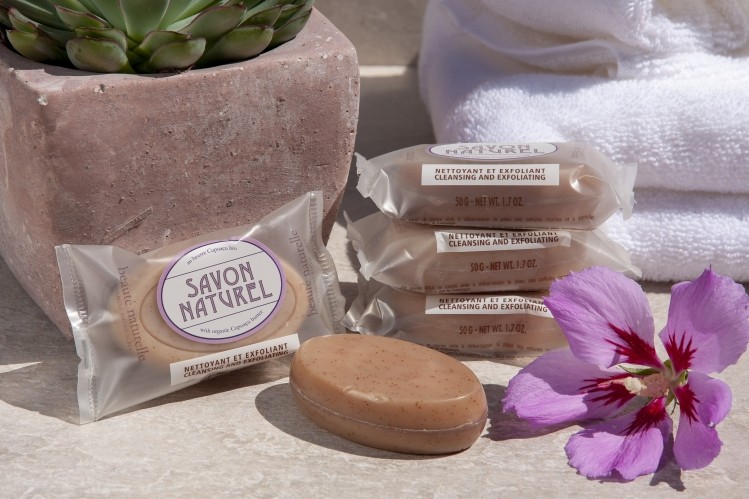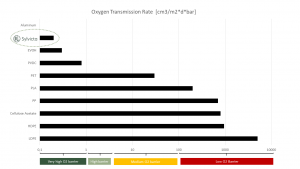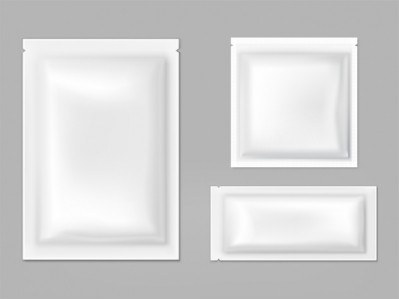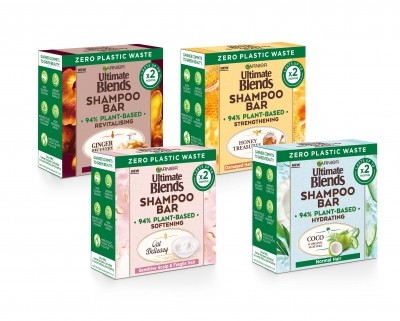‘Unique sustainable properties’: Arjowiggins develops translucent barrier paper for cosmetics

The company’s translucent barrier paper Sylvicta had been developed using a precision fibre refining technique to create a natural bonding that provided a barrier to oxygen, aroma and oils; matching the preservation power of plastic. Arjowiggins said the paper had “unique sustainable properties” because it was fully recyclable, compostable, marine degradable and made from renewable raw materials, answering industry demand for sustainable packaging alternatives.
The paper could be used as primary packaging to wrap a range of cosmetic products, from soap bars to bath bombs and even some creams and could be integrated into conventional converting lines. Arjowiggins said the material, importantly, provided plenty of “creative possibilities” as it could be foil-stamped, embossed, metallised, and even coated with bio-wax to obtain wet-strength properties and increase translucency.
‘Reduce, remove or replace’ – a sustainable alternative to plastic for perishables
Speaking to CosmeticsDesign-Europe, Christophe Jordan, managing director of the translucent paper division at Arjowiggins, said the packaging material took around two years to develop.
“With brands coming under increasing pressure to reduce, remove or replace plastic due to environmental concerns, we recognised that a major development of a truly innovative product was required to deliver the same performance as plastic in the way we package perishable items,” Jordan said.
“…We’re incredibly proud to finally be able to launch Sylvicta, answering the market’s needs for sustainable alternatives to single-use packaging and flexible laminates.”
Arjowiggins would now continue its work with packaging converters to “open up an endless array of applications”, he said, including pouches, sachets and even labels. The company had already collaborated with many specialised converters up until this point, he said, on aspects like increasing the high moisture barrier of the paper and adding UV protection and heat-sealable properties.
Jordan said the translucency of the material had been especially important in the development phases, as it enabled brands to “showcase their products” to retailers and consumers alike.
“Whilst paper doesn’t have quite the same levels of transparency as plastic, this is not thought to be a deterring factor for the environmentally conscious consumer. Evolving consumer attitudes mean that the public wants to be part of the solution and will embrace certain trade-offs when the protection of the planet is at stake,” he said.
Translucent paper provides ‘superior barricade’ against oxygen and fragrance
Asked if the barrier paper could prolong the shelf life of cosmetics in the same way regular plastic packaging could, he said: “Compared even to very high O2 barrier plastic equivalents, such as EVOH, PVDV and PET, Sylvicta’s distinct advantage is that it delivers a superior barricade against oxygen – the leading cause of spoilage in perishable items – as well as odour and mineral oils. This means it not only preserves the aroma and freshness of the packaged goods, it reduces waste by prolonging shelf life during the transportation, retail and consumer phases of the value chain.”
Argowiggins' next goal for this material, he said, was to work with a specialist converter to make it hydrophobic so it could be used as an effective barrier for liquids whilst being water resistant – “a must for many brands”.
Earlier this year, international beauty major L’Oréal launched its first ever paper tubes under its La Roche-Posay brand, though these tubes still contained layers of plastic laminate for preservation. Co-developer Albéa Packaging was now working to make the second-generation variant fully recyclable and remove any plastic barriers.

![Collaboration and partnerships will be needed throughout the entire supply chain for beauty to truly transform into circular business models moving forward [Image: Albéa Group]](/var/wrbm_gb_food_pharma/storage/images/_aliases/wrbm_medium/publications/cosmetics/cosmeticsdesign-europe.com/article/2022/03/14/circular-beauty-must-be-priority-for-entire-supply-chain-says-albea-group-ceo/13314379-1-eng-GB/Circular-beauty-must-be-priority-for-entire-supply-chain-says-Albea-Group-CEO.jpg)
![The lid is made of a blend of plant-based materials, including byproduct wood chippings, and maintains a luxury edge thanks to a ceramic feel [Image: Chanel/Sulapac]](/var/wrbm_gb_food_pharma/storage/images/_aliases/wrbm_medium/publications/cosmetics/cosmeticsdesign-europe.com/article/2021/10/14/chanel-rolls-out-biobased-lids-across-les-eaux-de-chanel-perfume-collection-co-developed-with-sulapac/12926213-1-eng-GB/Chanel-rolls-out-biobased-lids-across-Les-Eaux-de-Chanel-perfume-collection-co-developed-with-Sulapac.jpg)














